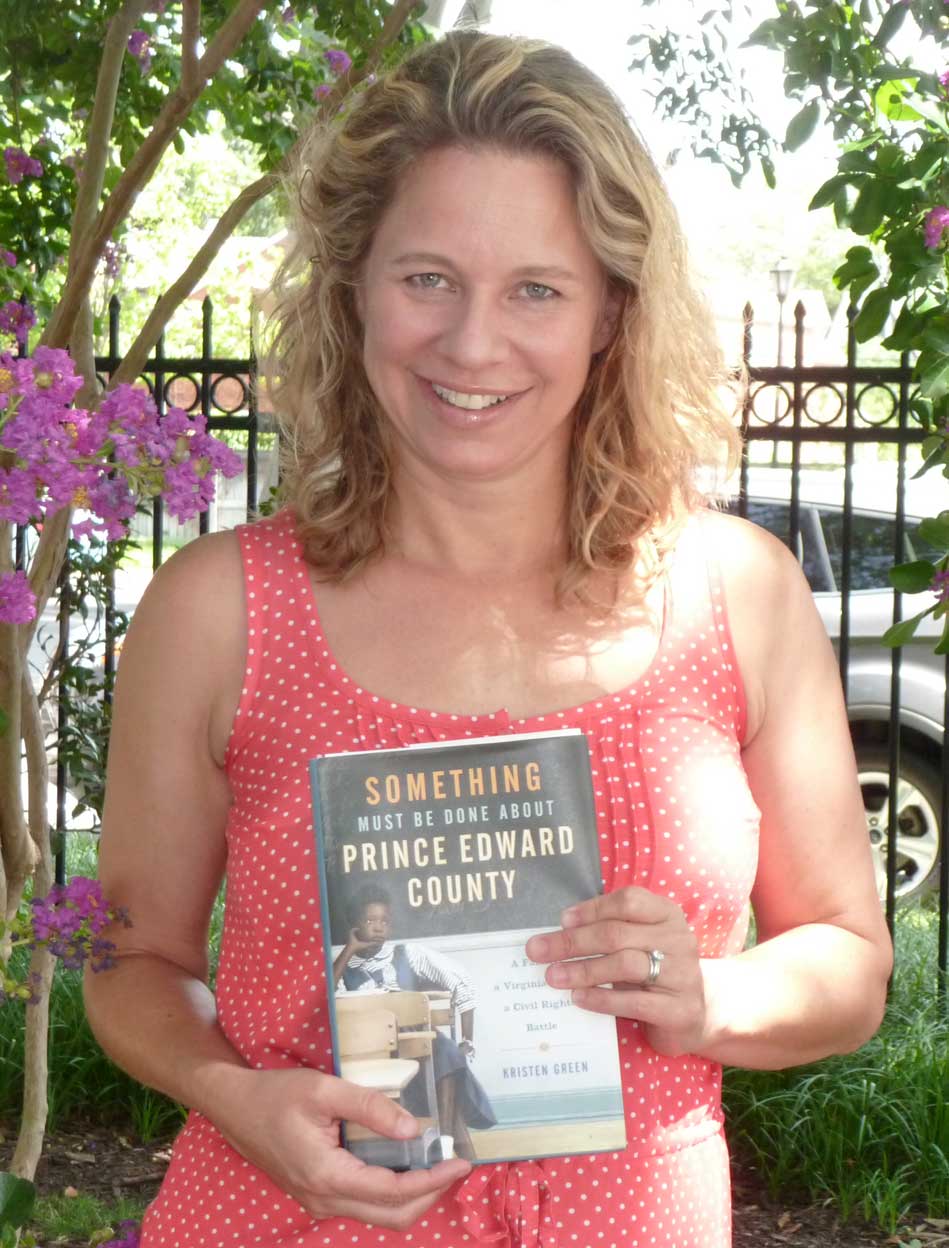For author, a time of reckoning
Published 12:59 pm Thursday, July 30, 2015

- Farmville native Kristen Green, a veteran newspaper reporter, penned “Something Must be Done About Prince Edward County,” a memoir and historical account of her family’s and hometown’s resistance to public school integration. (Photo by Sean Korsgaard)
By Sean Korsgaard
Special to The Farmville Herald
Journalist and author Kristen Green grew up in Farmville, having enjoyed what she describes as an idyllic childhood in “a perfectly charming Southern town.”
That charm, however, masked an ugly chapter of recent history, when Prince Edward County found itself a battleground over school desegregation, a battle that would harm an entire generation of schoolchildren caught in the crossfire, when local leaders chose to close the schools rather than integrate them.
Green, who has since worked for The Boston Globe, The San Diego Tribune and the Richmond Times–Dispatch, has spent much of the last eight years studying what happened, the harm done by the school closure, and coming to terms with the role her family had in helping cause it.
The result of all those interviews and hours of research is Green’s recently published book, “Something Must be Done About Prince Edward County,” which is equal parts historical reflection and family memoir.
“It took me a long time to get to the point where I was even comfortable writing about it,” Green said. “There was a process of feeling like I was in a place where I was ready to hold my family accountable for their role and reckon with what that meant … that my family was involved and started a private academy and school closures.”
Prince Edward County public schools were shut down between 1959 and 1964 in the wake of the Supreme Court’s Brown v. Board of Education decision, refusing to obey the law, choosing instead to close all public schools in Prince Edward County rather than integrate them. White students attended the private Prince Edward Academy – since rebranded Fuqua School – which didn’t admit black students until 1986. Her grandfather helped open the academy and was a member of the local board of the Defenders of State Sovereignty, and Green, her parents and siblings would all attend the school as students.
While the county’s public schools were closed, 1,700 black students had to either move out of the county or receive no education at all. It took five years for the courts to order the schools reopened, but by then the damage had been done. The illiteracy rate of blacks ages 5 to 22 had jumped from 3 percent to 23 percent. African-Americans in Prince Edward County still speak of a “lost generation,” where those who were able were sent away from their families to continue an education that Prince Edward County denied them, and those who remained local simply never finished their educations at all.
Green’s book highlights many of these heartbreaking cases and the long-term social and economic impacts the closure of the public schools had on Prince Edward County’s African-American residents, and how it is still a sensitive subject for many residents.
“It’s always difficult for people to talk about that time in history, especially as recent and personal as it is for many people,” said Green. “You very rarely will find someone immediately open up; it’s hard to talk about, but more people eventually began opening up and coming forward and talk about what happened.”
Getting people to be willing to talk about what happened and have those difficult conversations became one of the things that kept motivating Green writing the book.
“One of the only ways that we’re going to move forward as a country is to have that conversation about what was done and the lingering issues caused by those actions, and I think it’s wonderful that there is a desire to have this conversation,” said Green. “We need to listen to each other, and the conversation has to go deeper than it has in the past, and this is the perfect opportunity to do that because there seems to be a willingness right at this moment to do that.”
If her book didn’t spark the conversations, it has certainly since become a part of it, and Green wouldn’t have it any other way.
Green points to the ongoing debates over the Confederate flag and other Civil War icons as an example of how such discussions are being had nationally and where progress is being made.
As a more local example, Green points to the example of the old Moton segregated high school – which a former chairman of the county board of supervisors pushed to be demolished – having since been declared a national landmark and converted to the Robert Russa Moton Museum, which attracts thousands of visitors each year to Farmville, a number expected to climb after the recently announced partnership between the museum and Longwood University.
“Moton is a wonderful showcase for the power of what proper remembrance and reconciliation can achieve,” said Green. “The story Moton tells is that Prince Edward is better today, and the existence of this museum shows that the community has come a long way and is moving forward.”
As for where Green goes from here? She’s begun planning her next book, and though not giving any specifics just yet, she promises it will focus on another chapter of Virginia history.
For now, though, Green is content to have done her part to make right on her ancestors wrongs, and to ensure the events that happened in Prince Edward County will be remembered, for both the good and the bad.
“I can be someone who loves Farmville and loves where I grew up and yet be ashamed of coming from a town that did something so hateful,” said Green. “I can love my grandparents and feel like they were critical to making me who I am but also be ashamed of the stance they took during this era. Only when we come to terms with what wrongs were done can we begin to make things right.”





